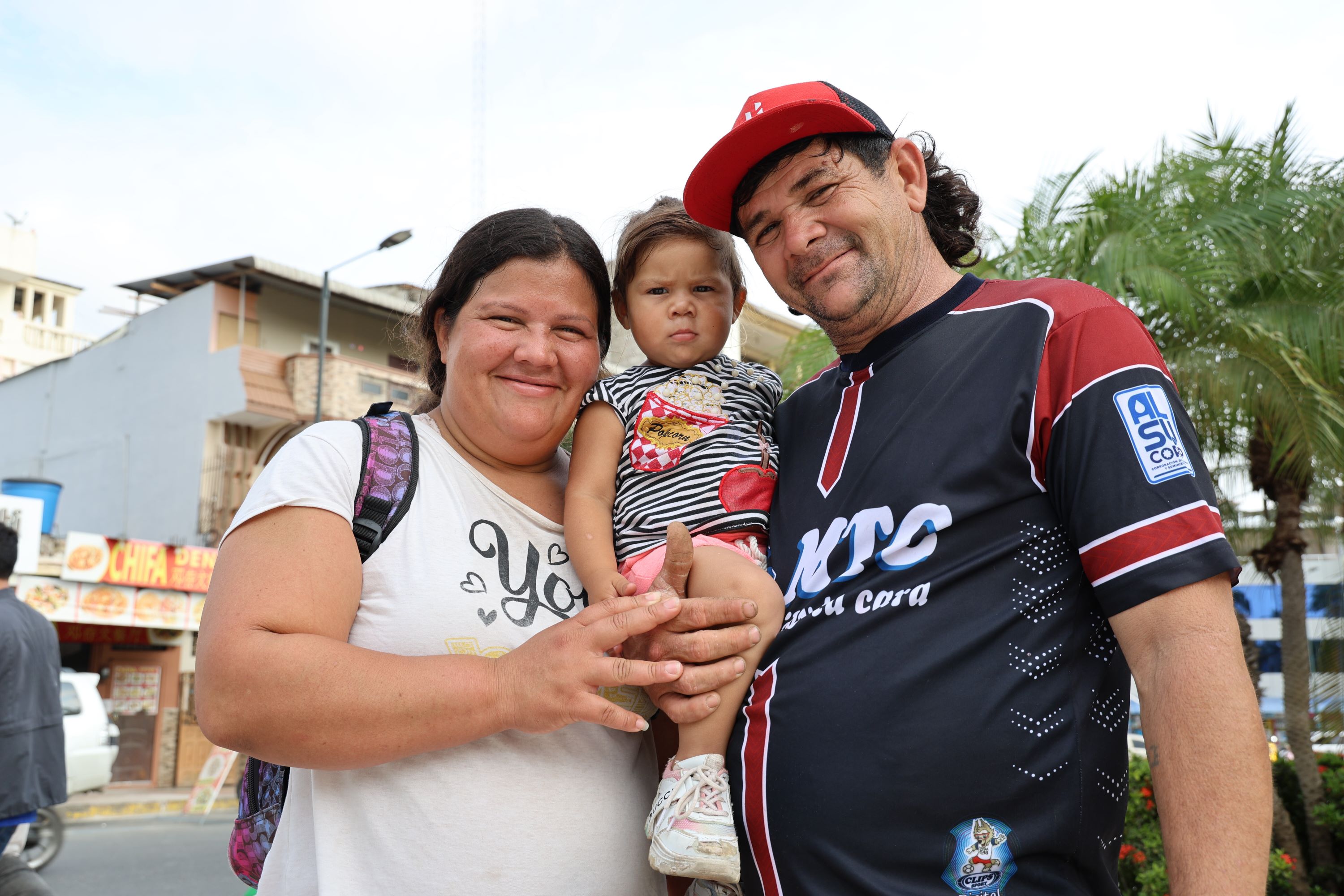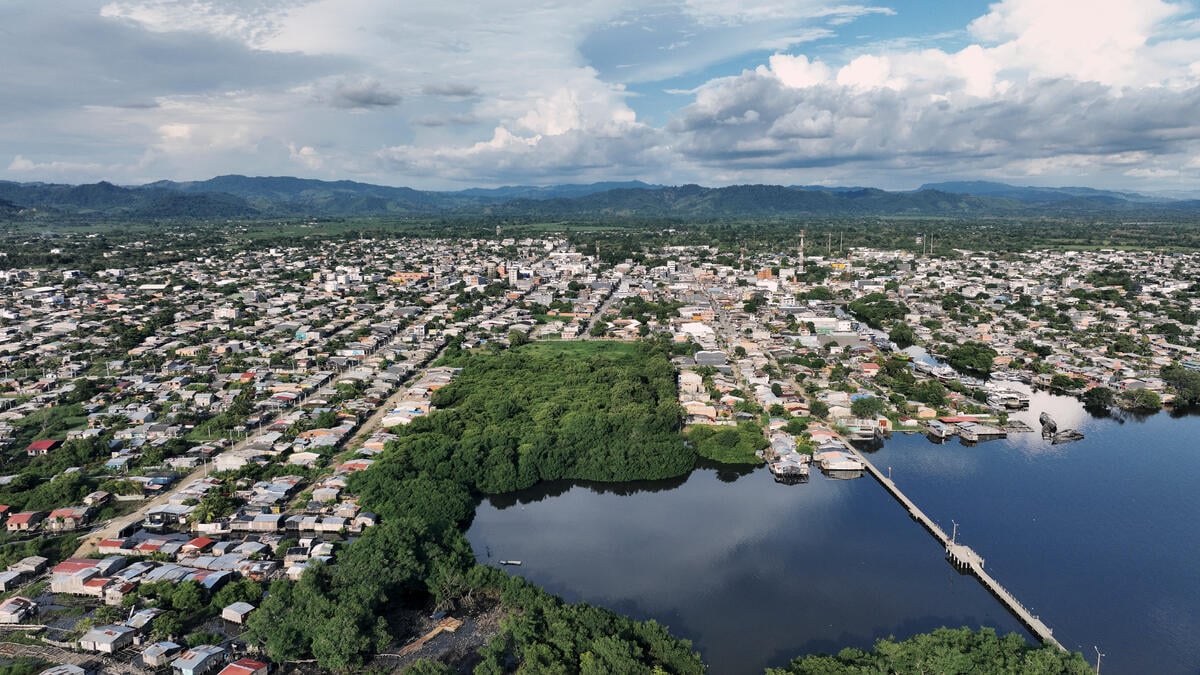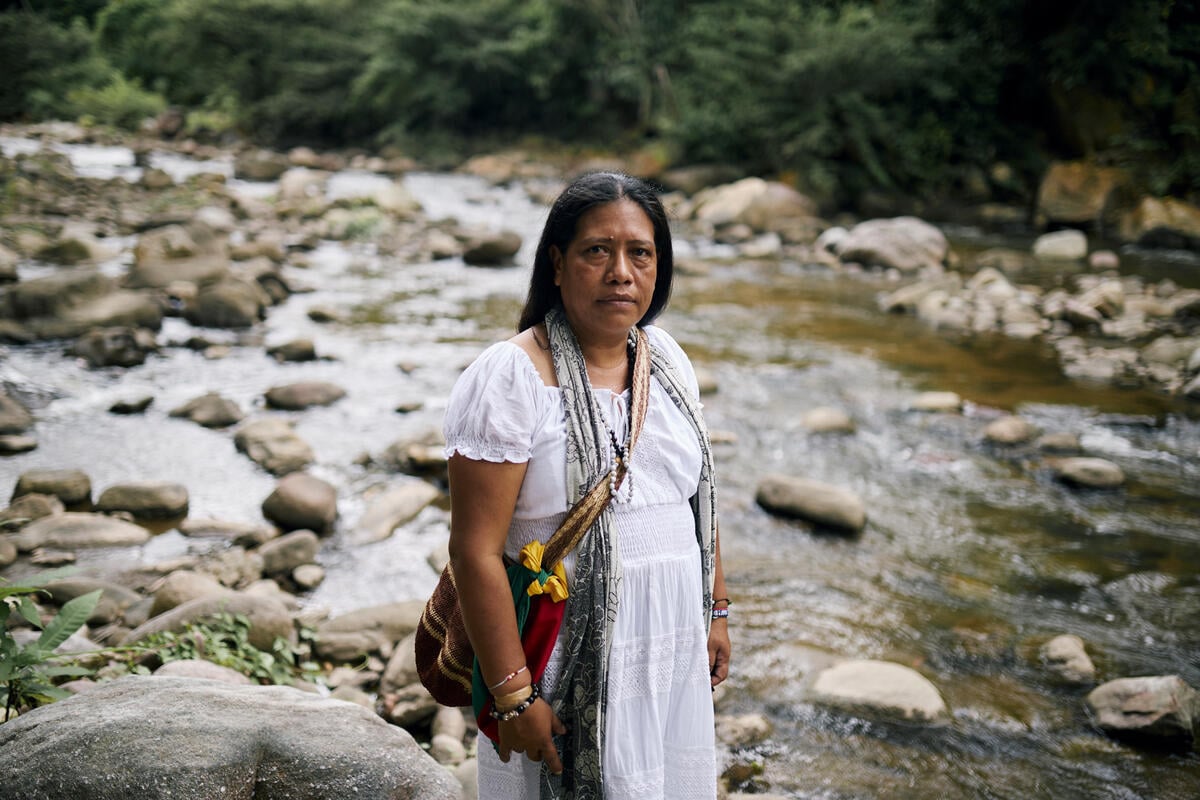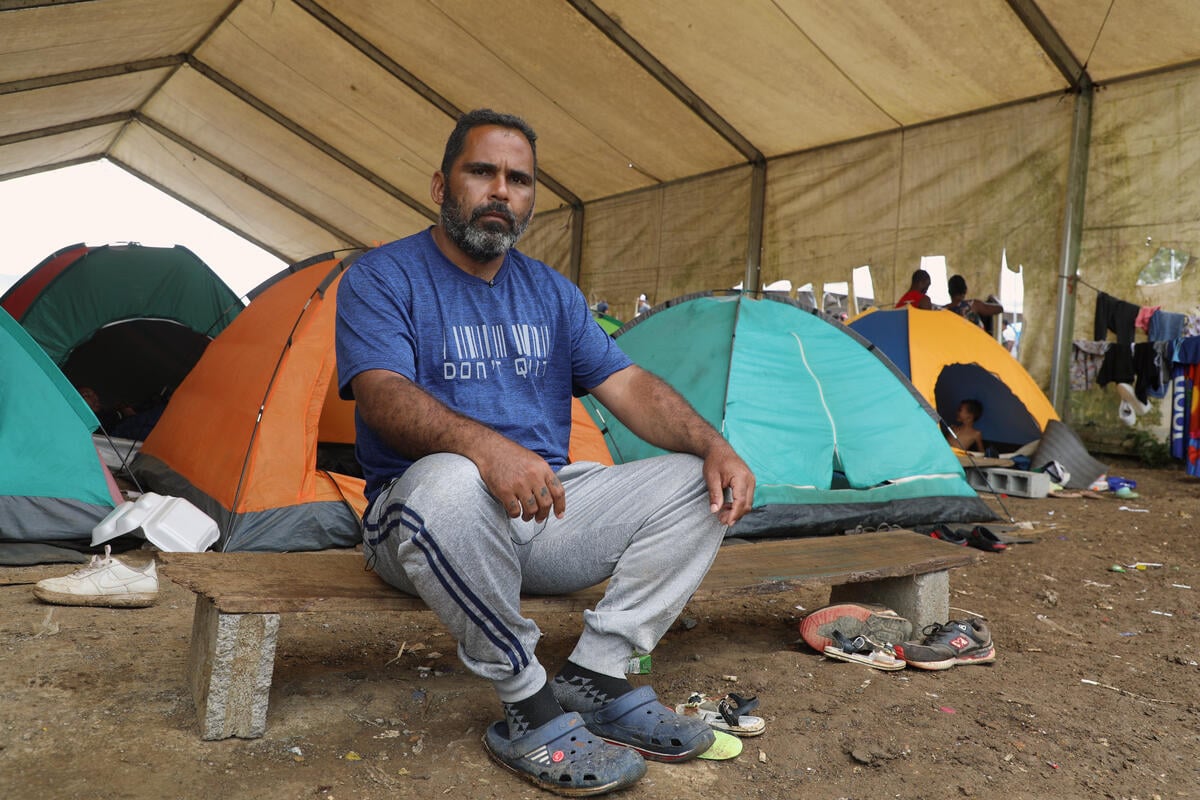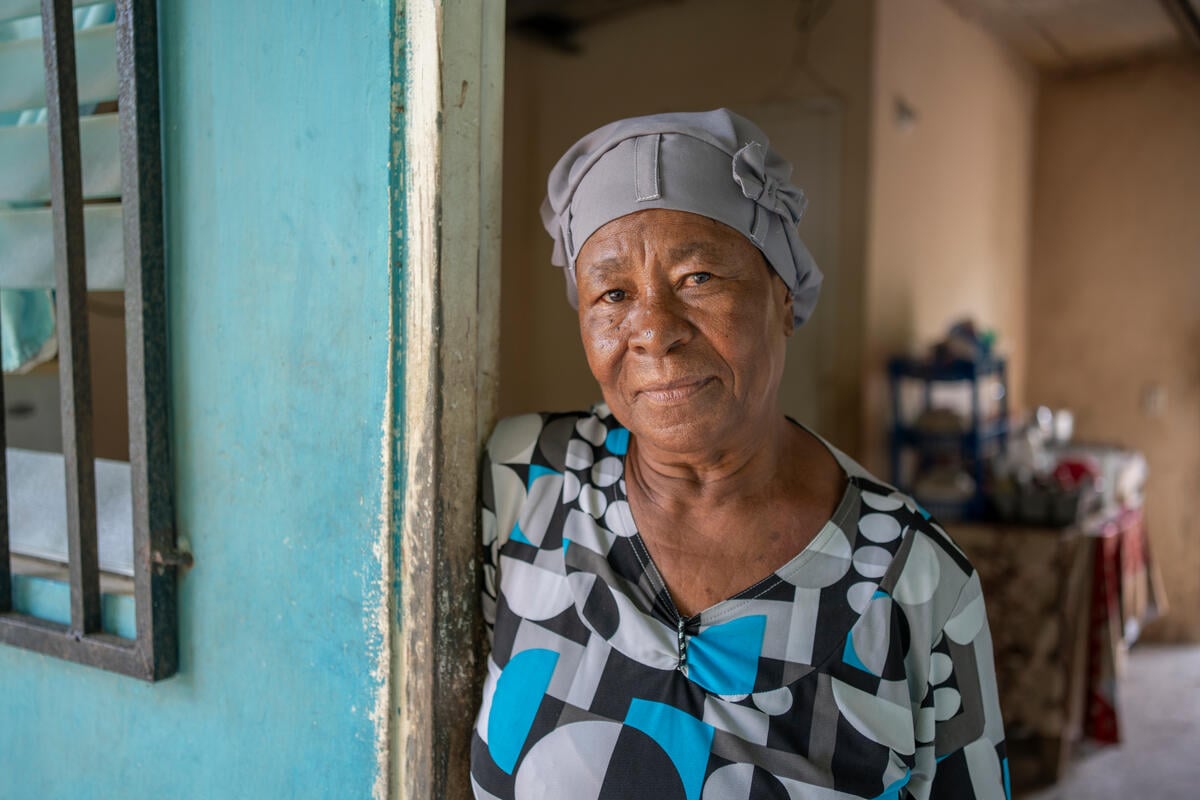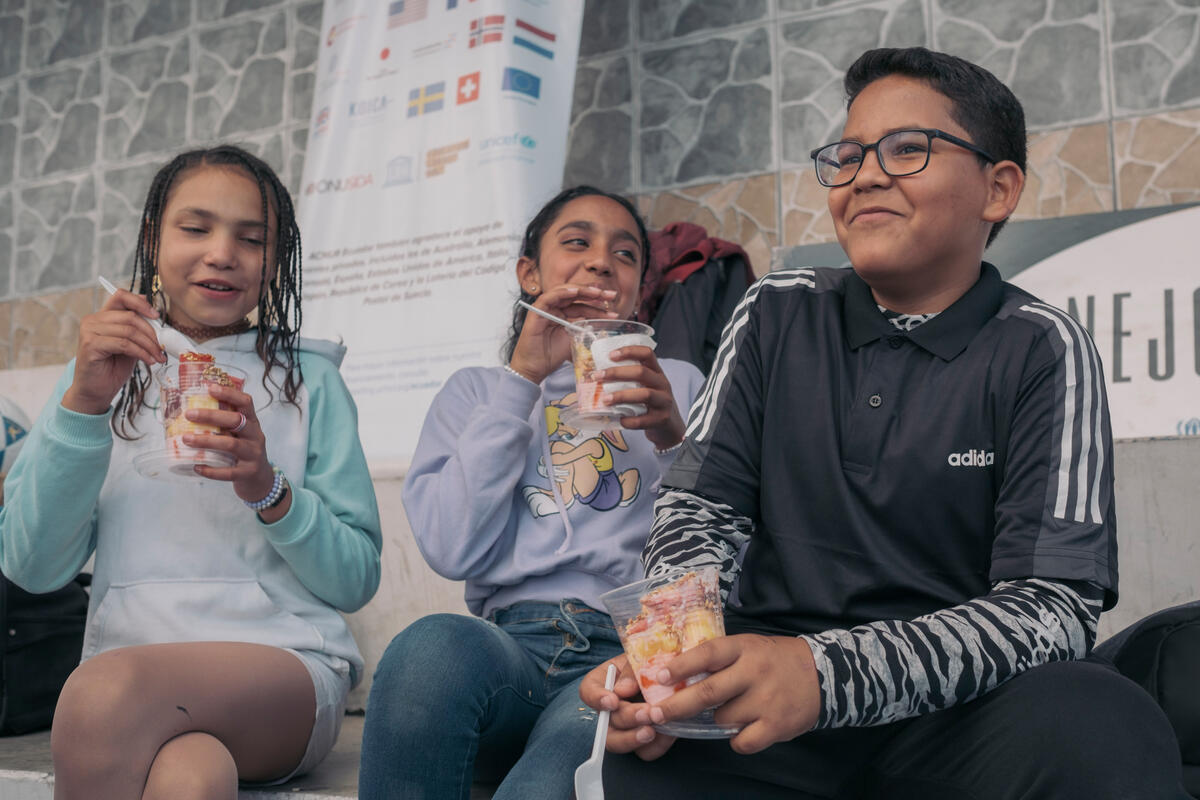Going where other people don't go: UNHCR reaches out in Ecuador
Going where other people don't go: UNHCR reaches out in Ecuador

PROVIDENCIA, Ecuador, December 16 (UNHCR) - In a recent address at Oxford University, UN High Commissioner for Refugees António Guterres warned once again about the diminishing space in which displaced people can find shelter and humanitarian workers help them.
But in places like northern Ecuador and neighbouring Colombia, UNHCR staff members are finding a way to reach out to the most vulnerable, isolated and needy. "We go where other people don't go," said one senior UNHCR official, adding: "It's a way of keeping the humanitarian space open, and this is vital."
During a trip to Colombia and Ecuador's Sucumbios province, I found out what this colleague meant during a journey deep into the rainforest on Ecuador's border with Colombia's volatile Putumayo department, one of the country's main coca-growing areas and a stronghold for criminal gangs and illegal armed groups.
Three years ago, UNHCR staff came across a community of Afro-Colombian refugees who had been living close to the San Miguel River for almost two decades without the knowledge of Ecuador's civilian authorities. We have been visiting them ever since and I was headed to their settlement, Providencia.
Sonia, a UN Volunteer working in UNHCR's office in the frontier-like oil town of Lago Agrio, was my guide. We set off just before dawn in a four-wheel drive on a track that our driver, Darwin (named after the paleontologist who will always be linked to Ecuador's Galapagos Islands), knew well from countless field trips.
After driving for two hours along a slippery mud track cut through the thick forest, we reached the riverside hamlet of Baranca Bermeja, where an Ecuadorean activist for local rights had been murdered just a few weeks before. On a bluff overlooking the San Miguel River, the mist-topped trees on the Colombian side stretched away westwards to the foothills of the Andes.

We scrambled down to the river, where a pirogue and two experienced boatmen awaited us. We wore UNHCR visibility items; t-shirts, caps and lightweight waterproof ponchos to protect against the rain. A big UNHCR flag fluttered from the prow of the boat. This was to let everyone we passed know exactly who we were - essential in an insecure zone.
Then we headed upriver into, for me, the unknown. I thought of Joseph Conrad's "Heart of Darkness" as I anxiously scoured the forest, pressing in on either side of the ribbon of water separating the two countries. I felt an air of menace.
We had to stop two or three times to push the canoe through shallow water and I was sweltering under the morning sun when we pulled over to a pebbly beach after more than two hours. A 15-minute walk through the sucking mud and the forest in our wellington boots - everyone wears them here - brought us to a clearing and the village of Providencia.
A man wearing a stetson and jeans, an evil-looking machete swinging at his waist, came over and escorted us past wooden stilt houses with corrugated iron roofs to the settlement's solid brick classroom, built by UNHCR and its partners and equipped with simple desks, blackboards, maps and books. The whole village had turned up for the event of the day.
They all seemed happy to see Sonia, who skilfully and sympathetically dealt with a barrage of questions about their very real concerns. These included issues such as land ownership, health care, transport costs and other serious issues.
Maria, the 50-year-old village matriarch, came here 17 years ago to escape violence in Colombia's Nariño department. "There were no houses, nothing.
I arrived with my husband and the children and we made a shelter with leaves," she said. Other relatives followed and "now there are around 22 families."
For years, the villagers would cross the river when it was low to take their children to school or to visit the doctor in Colombia. "The first authority that came here was UNHCR," Maria recalled. And we were followed by government institutions, protection through registration as refugees, and assistance. "We work closely with the municipality [of Lago Agrio] and try to create a kind of legal status for communities [like Providencia] that don't exist [legally]," Sonia told me.
"We are grateful because people are coming and we are receiving aid," Maria said. That aid includes state-appointed teachers, water collection tanks and agricultural programmes. These help to make conditions a little easier, but life is still tough.
Alfredo Ordonez Rodrigo, 28, works in fields carved out of the forest and its acidic earth to provide for his partner and two children. "I use my machete and an axe in the fields, growing yucca [a root vegetable], maize, banana and rice," he said, adding: "If it's too hot or rainy, I stop." There's a lot of both.
All too soon it was time to leave, but our departure was delayed by the daily downpour - a curtain of rain kept us penned in the classroom for two hours and by the time we headed downriver, the water had risen a foot or two.
We had to leave, forbidden by UN security guidelines from staying overnight in such a remote and unpredictable location. Maria, her clan and thousands of other refugees in the forests of Sucumbios choose to remain in this inhospitable area. "I feel safe," she told me, adding: "We know how to deal with the environment."
But the people of Providencia do need help and that's why my colleagues, like Sonia, will continue to trek into the remotest and toughest regions along the San Miguel and Putumayo Rivers and further inland to find and listen to these people of concern and bring their needs to the attention of the authorities.
By Leo Dobbs in Providencia, Ecuador

